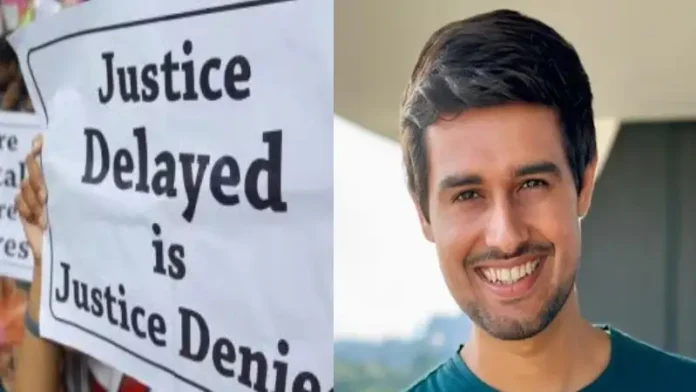The recent Kolkata rape case has ignited a wave of outrage across India, with doctors, activists, and politicians taking to the streets to demand justice for the trainee doctor who was victimized. Over the past ten days, the issue has been at the forefront of national discourse, discussed widely across mainstream media platforms.
However, as the topic gained momentum, social media influencers, too, jumped on the bandwagon, leading to a new trend where they publicly addressed the issue. Notable influencers such as Dhruv Rathee, Elvish Yadav, and Carry Minati spoke about the case, attempting to lend their voices to the cause. Yet, many of their followers and critics alike have pointed out the glaring hypocrisy in their approach.
These influencers, who typically showcase glamorous lifestyles—dressed in stylish outfits, hanging out with friends, clubbing, gyming, and engaging in casual banter—suddenly pivoted in their vlogs to address the serious issue with superficial statements like, “Yaar, ye bahut galat hua,” or “Kolkata rape victims ko nyay do.” This stark contrast between their usual content and the brief moments they dedicate to such grave issues raises questions about the depth of their concern. The insincerity becomes even more apparent when, after a minute or two of discussing the case, they return to their regular, light-hearted content as if nothing happened.
Some influencers took it a step further, creating “Get Ready with Me” videos or reels where they casually mentioned the Kolkata rape case in the background. The result is a hollow expression of concern that feels performative rather than genuine. While it’s commendable that they are using their platforms to speak out against rape culture, one has to ask: Is this fleeting attention to a single, high-profile case enough to bring about real change?
The true impact of their advocacy is further diluted by their lack of engagement with the root causes and systemic issues surrounding gender-based violence. These influencers fail to press the administration for immediate action or hold the state and central governments accountable. They also conveniently ignore the daily realities of marginalized women—Dalit and Adivasi women—who are disproportionately affected by sexual violence but whose stories rarely make headlines.
It's troubling that these influencers, who are supposed to be champions of gender justice, often reinforce the very stereotypes they claim to stand against. After a week or so, many of them will likely move on, returning to content that objectifies women, trivializes serious issues, and perpetuates harmful gender norms. Their superficial advocacy is a stark reminder of the difference between genuine activism and opportunistic content creation.
Women influencers, too, must go beyond lip service. They need to be well-informed about their rights, legal protections, and the broader context of women’s issues in India. True change will come when influencers—both male and female—commit to ongoing, informed, and sincere advocacy, rather than treating gender justice as just another trending topic.

Ritu, National Coordinator, AIOBCSA. She writes on caste and gender issues.


